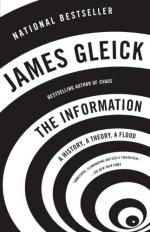
|
| Name: _________________________ | Period: ___________________ |
This quiz consists of 5 multiple choice and 5 short answer questions through Chapter 6.
Multiple Choice Questions
1. What society created the first numeric tables?
(a) Babylonian.
(b) Chinese.
(c) Roman.
(d) Egyptian.
2. What did the written language provide that helped to progress the intellect of mankind?
(a) Records.
(b) Education.
(c) Permanence.
(d) Books.
3. Who devised a way to multiply and divide numbers by adding or subtracting their logarithms?
(a) Thomas Fincke.
(b) Aristotle.
(c) Isaac Newton.
(d) John Napier.
4. Why did businessmen immediately take to the telegraph?
(a) Businessmen could save money on travel expenses.
(b) Orders no longer had to be hand written.
(c) Businesses did not have to hire as many workers.
(d) Orders and market information could be transmitted quickly over long distances.
5. How did people save money in sending telegraph messages?
(a) By not using it.
(b) By bribing the operators.
(c) By creating their own code.
(d) By compressing the message.
Short Answer Questions
1. Who invented the telegraph?
2. What was difficult for people to accept about telegraph communications?
3. How were phonetic sounds represented in language?
4. Who first thought of constructing a machine that could calculate logarithms?
5. How did the drummers of Africa differentiate between similar words?
|
This section contains 245 words (approx. 1 page at 300 words per page) |

|




